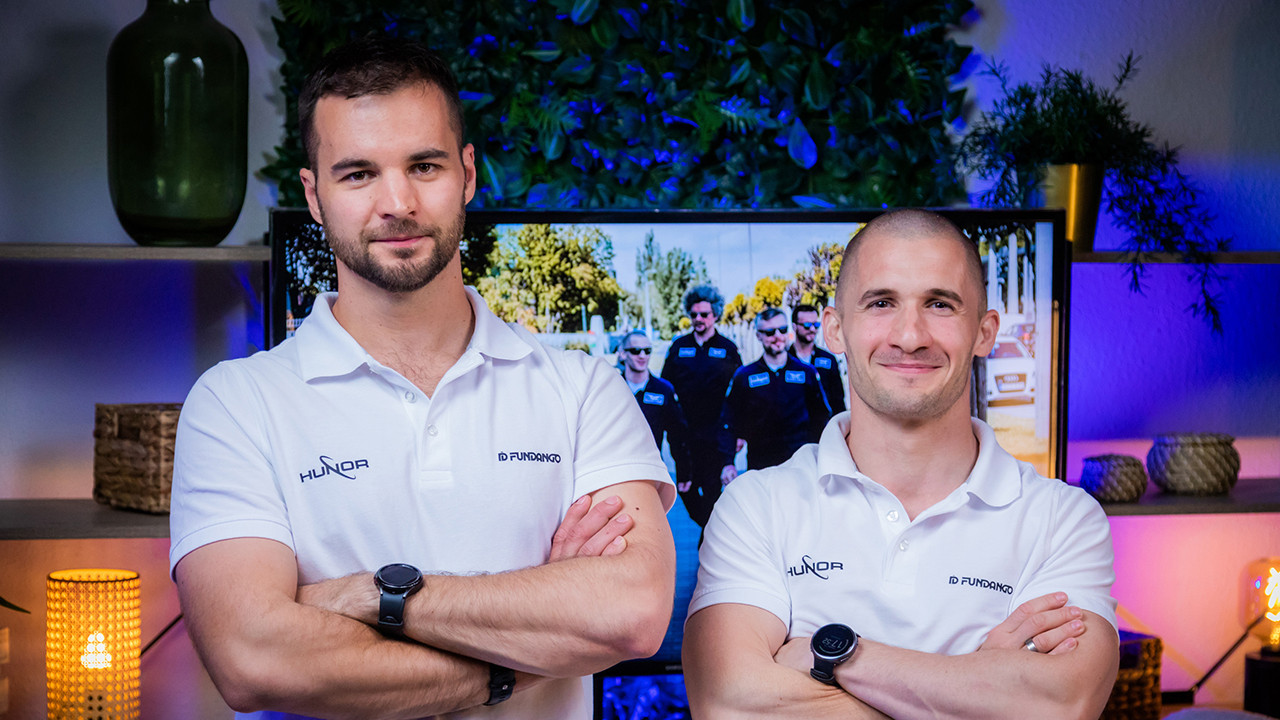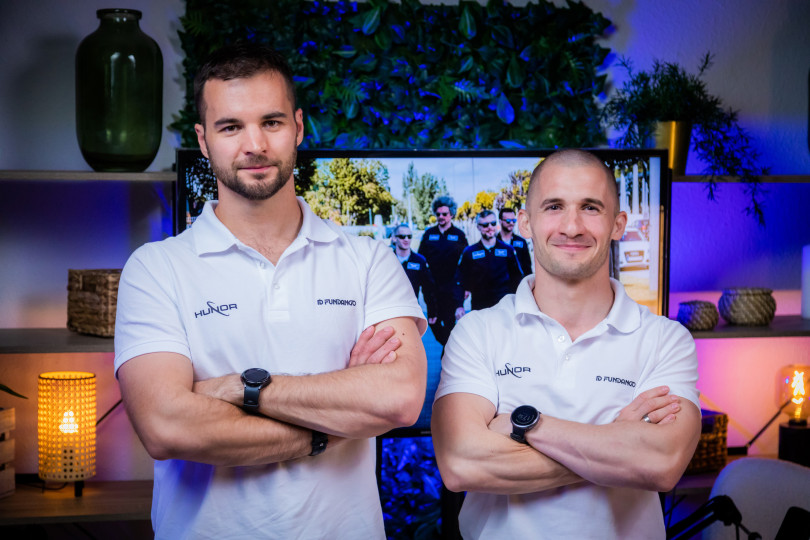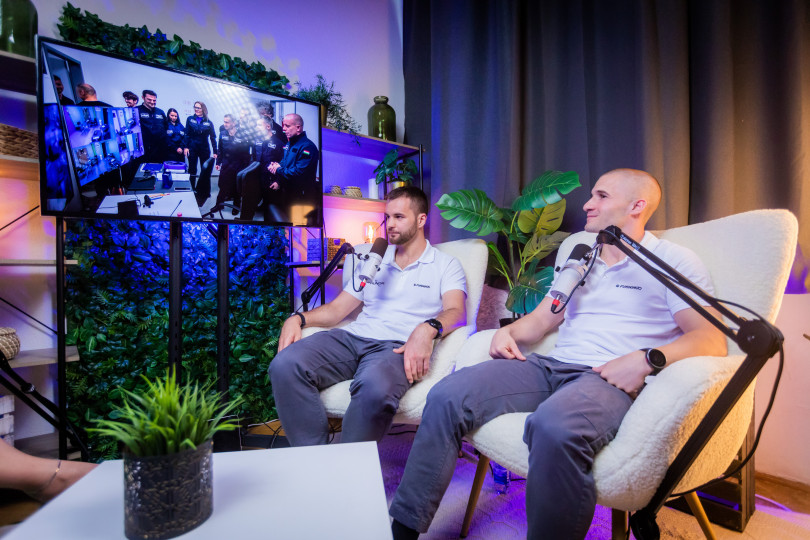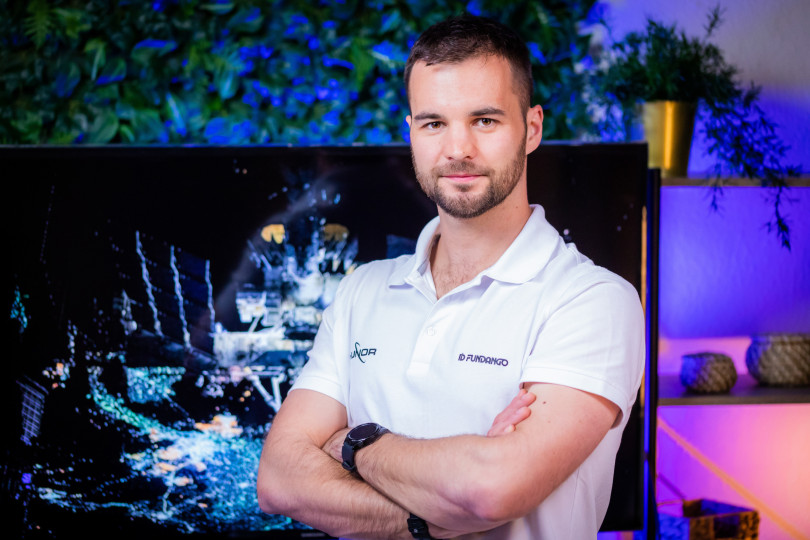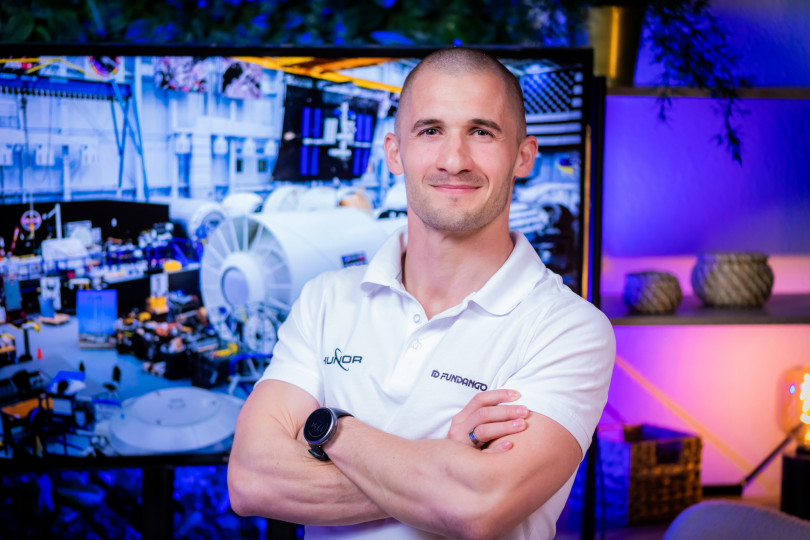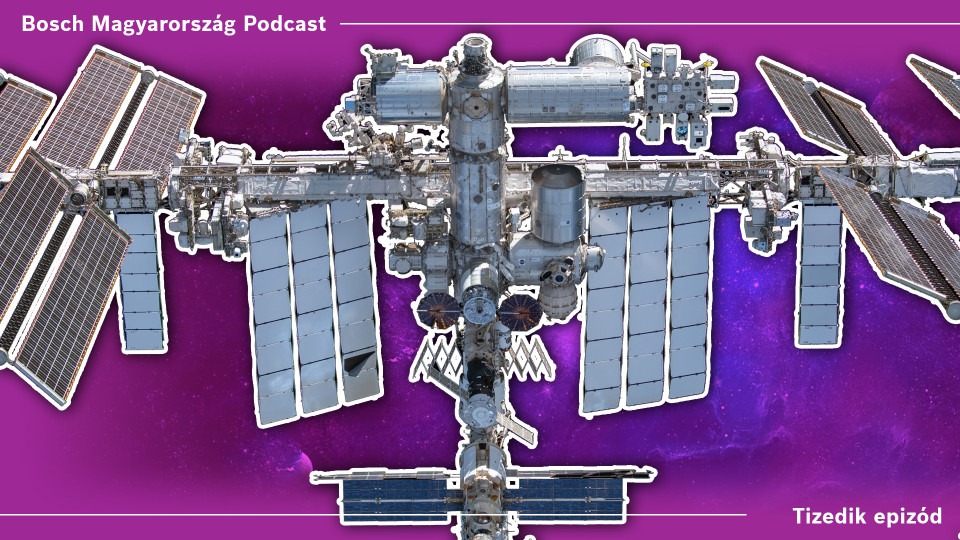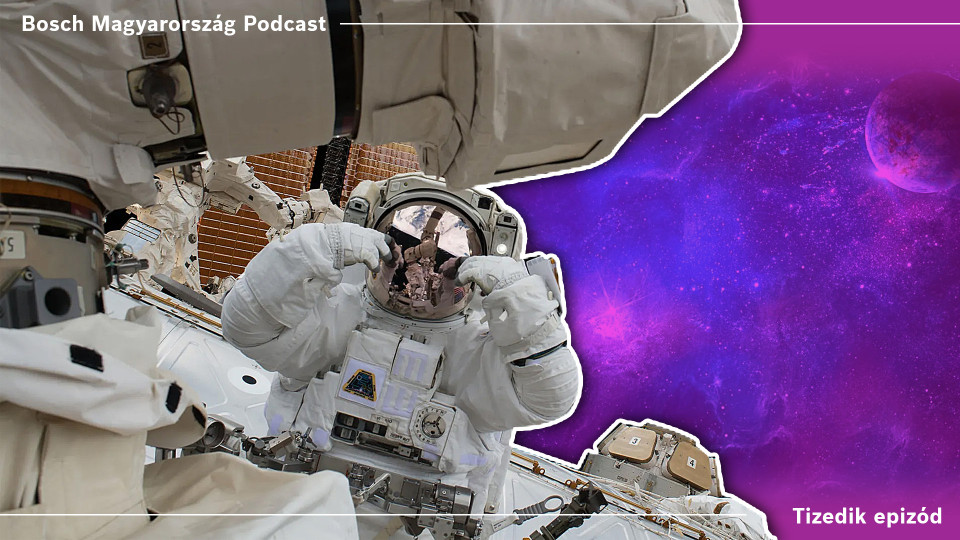Thanks to the Hungarian to Orbit Astronaut Program (HUNOR) program, two dedicated engineers are opening a new chapter in the history of Hungarian space flight after 44 years. They both started their careers at Bosch and will soon participate together in the final phase of astronaut training in the United States. Innovative thinking and a belief in originality and in continuous change are the defining characteristics of the lives of the recently selected scientist-astronaut Tibor Kapu and reserve scientist-astronaut Gyula Cserényi. In the tenth episode of the Bosch Hungary Podcast, they share the most challenging and exciting moments of their training and also talk about the details of the Hungarian astronaut mission. As an expert guest on the podcast, Aladár Orbán, team leader at the Bosch Budapest Engineering Center, gives an insight into the company's space industry developments.
The lives of Tibor Kapu and Gyula Cserényi have taken a radical turn in the last two years. One of the biggest news stories of the last few weeks was that Tibor will be representing Hungary in an international mission as a scientist-astronaut and Gyula as a reserve scientist-astronaut. The latest episode of Bosch's podcast reveals that the two engineers are not only connected by their dreams, common goals and shared struggles: they both used to work at Bosch's automotive electronics site in Hatvan. Gyula strengthened the local Bosch team for 10 years, while Tibor worked with the head of the Budapest Engineering Center after his years in Hatvan. In the jubilee episode of the Bosch Hungary Podcast, Tibor Kapu scientist-astronaut, Gyula Cserényi reserve scientist-astronaut, and Aladár Orbán, a team leader at Bosch, are interviewed by Edit Tóth, digital media manager of the Bosch Group in Hungary.
Hungarian researchers, Hungarian instruments, Hungarian experiments in space
The selection of the next Hungarian astronaut was met with great interest in Hungary. Bosch's recent podcast episode shows that one of the important goals of the HUNOR program is research and development: the selected astronaut will participate in the mission on the International Space Station (ISS) with independent Hungarian experiments and with instruments developed in Hungary. Hungarian space industry companies, higher education institutions and research institutes will be able to use the tools and knowledge developed in connection with the project to acquire space industry references, which is a prerequisite for entering the world market. “Space offers opportunities for research that domestic scientists and researchers would only have the chance to do in 5-10 years' time,” said Gyula Cserényi.
Mars helicopter, satellite stabilizer, noise probe – Bosch innovations in space research
Bosch also has a wide range of space industry references: although not its main profile, the company has been involved in space-related developments since the 1980s, the podcast reveals. Bosch has developed, among other things, a satellite stabilization system and, in recent years, a sensor also in the Mars helicopter, which was originally designed for mobile phones but can also be used in space.
One of Bosch’s most exciting space-related developments that has also high-potential is Soundsee, which analyses the noise emitted by equipment on the International Space Station and uses artificial intelligence to recognize the sound of faulty devices or ones in a near-failure state, says Aladár Orbán, team leader at the Bosch Budapest Engineering Center, in the podcast.
Edible space plants, radiation protection, space medicine - the Hungarian space mission can also help in these topics
Several products have been developed throughout the history of space exploration, that ultimately lead to quality-of-life improvements, such as scratch-resistant optical lenses and wireless headphones, the podcast episode reveals. There have also been huge advances in special coatings and miniaturization, as the high cost of space travel means that the smallest possible size and minimum weight are important considerations, says Gyula Cserényi. The International Space Station has two special features that make it unique for scientific experiments: microgravity and cosmic radiation, so Hungarian research and instruments will also be “tested” in this unique environment.
The HUNOR program will be built around 5 basic experiments: new medications will be tested, a special material simulating lunar rocks will be “launched” into space, and there will be extensive research in the field of space medicine. In addition, the astronaut's health parameters will be measured to see how the body reacts to the circumstances, and radiation measurements will also play an important role in the research. “Hungary is a major power player in the field of dosimetry. In 1980, Bertalan Farkas took with him to orbit the famous Pille dosimeter, an improved version of this instrument is still standard on board the International Space Station,” recalls Tibor Kapu in the Bosch podcast. And finally, a further goal of the program is to develop a plant with all its parts suitable for human consumption and able to withstand the extreme conditions of space.
Extreme stress: from Gripen tests to sleep and food deprivation
The latest episode of the Bosch Hungary Podcast also provides fascinating details on the multi-stage selection and training of Hungarian astronauts. Candidates were tested in several rounds for cognitive abilities, spatial vision, memory, they had to take part in comprehensive psychological tests and a series of detailed medical examinations. Those who passed all of these were then put through a flight with a Gripen jet fighter, where their body's response to G-loads was tested. This was followed by tests involving sleep and food deprivation in total isolation from the outside world, and then training in the US.
In the podcast, Tibor Kapu and Gyula Cserényi also talk about their journey to this point and their personal development: during their years at Bosch, they have developed skills such as communication, teamwork and change management, which they have been able to draw on during training.
Bosch Hungary Podcast: technology in plain language
The Bosch Hungary Podcast a quarterly show on the most current issues in innovation and R&D, with expert guests providing clear answers to the most pressing questions about the technology of the future. Those who want to learn about the Hungarian astronaut program, can watch the show on YouTube or listen to it on Bosch Hungary's Spotify, Apple Podcasts and Simplecast podcast channels!
Zita Hella Varga
Phone: +36 70 667-6374
Bosch has been present in Hungary since 1898 with its products. After its re-establishment as a regional trading company in 1991, Bosch has grown into one of Hungary’s largest foreign industrial employers with currently eight subsidiaries. In fiscal 2023 it had total net sales of 2.207 billion forints and consolidated sales to third parties on the Hungarian market of 343 billion forints. The Bosch Group in Hungary employs more than 18,300 associates (as of December 31, 2023). In addition to its manufacturing, commercial and development business, Bosch has a network of sales and service operations that covers the entire country.
The Bosch Group is a leading global supplier of technology and services. It employs roughly 429,000 associates worldwide (as of December 31, 2023). The company generated sales of 91.6 billion euros in 2023. Its operations are divided into four business sectors: Mobility, Industrial Technology, Consumer Goods, and Energy and Building Technology. With its business activities, the company aims to use technology to help shape universal trends such as automation, electrification, digitalization, connectivity, and an orientation to sustainability. In this context, Bosch’s broad diversification across regions and industries strengthens its innovativeness and robustness. Bosch uses its proven expertise in sensor technology, software, and services to offer customers cross-domain solutions from a single source. It also applies its expertise in connectivity and artificial intelligence in order to develop and manufacture user-friendly, sustainable products. With technology that is “Invented for life,” Bosch wants to help improve quality of life and conserve natural resources. The Bosch Group comprises Robert Bosch GmbH and its roughly 470 subsidiary and regional companies in over 60 countries. Including sales and service partners, Bosch’s global manufacturing, engineering, and sales network covers nearly every country in the world. Bosch’s innovative strength is key to the company’s further development. At 136 locations across the globe, Bosch employs some 90,000 associates in research and development, of which nearly 48,000 are software engineers.
Additional information is available online at www.bosch.hu, iot.boschblog.hu, www.bosch.com, www.iot.bosch.com, www.bosch-press.com, www.twitter.com/BoschPresse

